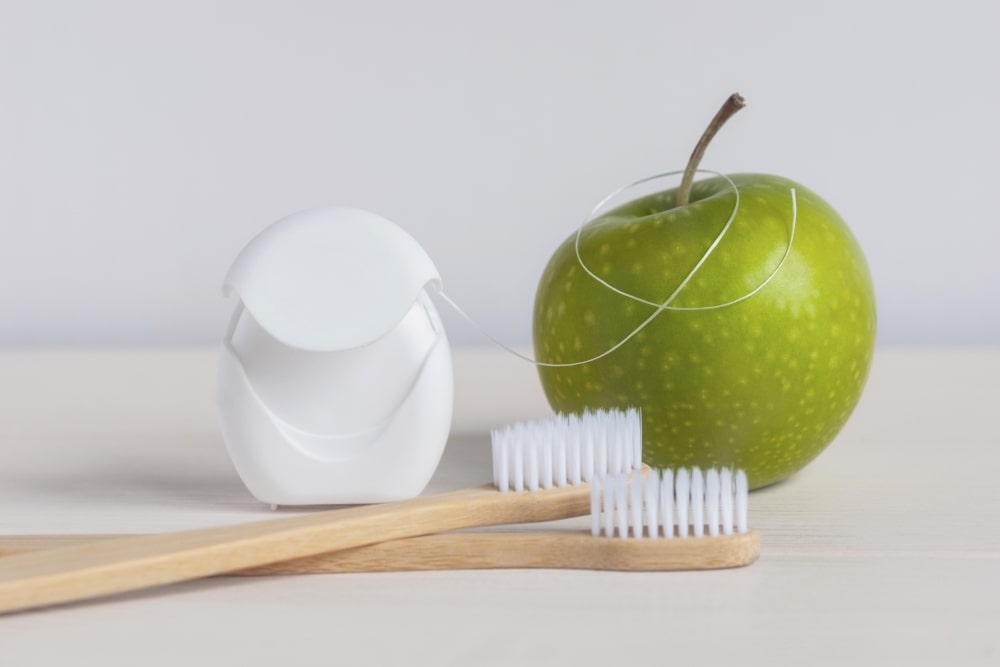The journey to a radiant smile goes beyond regular brushing and flossing; it starts in your kitchen. The foods we consume play a crucial role in maintaining strong teeth and healthy gums. A balanced diet provides the essential nutrients required to prevent gum diseases, tooth decay, and other oral health issues. Here are some of the best foods to incorporate into your daily meals for optimal dental health.
1. Cheese and Dairy Products
Dairy products like cheese, milk, and yogurt are rich in calcium, phosphates, and vitamin D. These nutrients strengthen teeth enamel and help to neutralize acids in the mouth, reducing the risk of tooth decay. Moreover, the act of chewing cheese stimulates saliva production, which aids in washing away food particles and bacteria.
2. Leafy Greens
Kale, spinach, and other leafy greens are packed with vitamins and minerals essential for oral health. They contain calcium, which builds tooth enamel, and folic acid, a type of B vitamin that has numerous health benefits, including potentially treating gum disease in pregnant women.
3. Apples
While it’s true that sweet foods can lead to cavities, fresh fruits like apples are an exception. Eating an apple stimulates saliva production, which rinses away bacteria and food particles. The fibrous texture of the fruit also stimulates the gums. Consider finishing your meal with an apple if you can’t brush your teeth immediately after eating.
4. Carrots and Celery
Crunchy vegetables like carrots and celery act like natural toothbrushes. They scrape off food particles and bacteria, stimulate gums, and promote saliva production due to their high water content. Plus, they are excellent sources of fiber, vitamin A, and vitamin C, which boost gum health.
5. Almonds
Almonds are excellent for your teeth because they are a good source of calcium and protein while being low in sugar. Enjoy a quarter cup of almonds with your lunch or add a handful to a salad or stir-fry dinner.
6. Fatty Fish
Fatty fish, including salmon, tuna, and mackerel, are high in omega-3 fatty acids and vitamin D. Omega-3s are linked with lower rates of gum disease, while vitamin D helps the body to absorb and use calcium effectively.
7. Green and Black Tea
Both green and black teas contain compounds called polyphenols that slow the growth of bacteria associated with cavities and gum disease. They suppress the bacteria’s acid production, reducing the chance of developing plaque and cavities.
8. Water
Water, especially fluoridated water, is the most tooth-friendly beverage. It helps to wash away leftover food and keeps your saliva levels high. Saliva is your mouth’s first defense against tooth decay because it contains proteins and minerals that counteract acids that can erode enamel.
9. Whole Grains
Consuming whole grains like oatmeal, brown rice, and whole-grain bread lowers the risk of gum disease. These foods have more complex carbohydrates, which stay in the mouth for a shorter time, reducing the potential for plaque formation.
10. Citrus Fruits
Although they are acidic, citrus fruits like oranges and grapefruits are rich in vitamin C, which strengthens blood vessels and connective tissue, including the tissue that holds teeth in your jaw. It’s important to take these fruits in moderation and rinse your mouth with water after eating to protect your enamel from the acids.

Maintaining oral health goes beyond regular brushing and flossing—it is deeply interconnected with our diet. Consuming foods like cheese, leafy greens, apples, carrots, almonds, and fish, which are rich in calcium, phosphorus, vitamin D, fiber, and other vital nutrients, can significantly boost the health of your teeth and gums. While these dietary guidelines can aid in oral health, they should complement, not replace, good oral hygiene practices and regular dental check-ups. Remember, the pathway to a radiant smile and robust oral health starts with the foods on your plate. Choose wisely and enjoy the benefits of a healthier mouth and a brighter smile.





